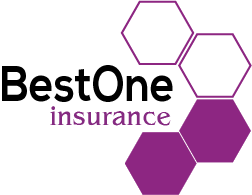In the vast and ever-evolving world of business, numerous risks can pose significant challenges to the success and stability of a company. As a result, it becomes crucial for entrepreneurs and business owners to safeguard their ventures against potential perils.
This is where business insurance offers a safety net to protect against unexpected events and liabilities. However, with many options available, it can take time to determine which types of business insurance are most relevant to a specific industry or company.
From property insurance to liability insurance and even workers’ compensation insurance, each policy uniquely mitigates risks.
In this discussion, we will explore the various types of business insurance available, shedding light on their importance and benefits, ultimately helping readers make informed decisions to safeguard their businesses.
Property Insurance
Property insurance is vital to comprehensive business insurance coverage, protecting physical assets such as buildings, equipment, and inventory against various risks and perils. Property damage coverage is a key feature of property insurance, safeguarding businesses from financial losses caused by damage to their physical assets. This coverage can include repairs or replacements for damages caused by fire, natural disasters, vandalism, or other covered events.
In addition to property damage coverage, property insurance also includes theft coverage. This is crucial for businesses with valuable assets at risk of being stolen, such as expensive equipment or high-value inventory. In the unfortunate event of theft, property insurance can provide financial compensation to help businesses recover.
Having property insurance is essential for businesses of all sizes and industries. Knowing that their physical assets are protected it offers peace of mind, and financial losses due to property damage or theft can be mitigated. By investing in property insurance, businesses can focus on their operations and growth, knowing that their physical assets are adequately covered.
Liability Insurance
Liability insurance is a crucial component of comprehensive business insurance coverage, protecting against potential legal claims and financial losses arising from third-party injuries or property damage caused by the business or its products. Coverage options for liability insurance can vary depending on the nature of the business and its specific needs. Some common types of liability coverage include general liability insurance, professional liability insurance, product liability insurance, and cyber liability insurance.
General liability insurance offers protection against claims of bodily injury, property damage, and advertising injury. It covers legal fees, medical expenses, and settlements or judgments. Professional liability insurance, or errors and omissions insurance, is designed for businesses that provide professional services. It protects against claims of negligence, errors, or omissions that result in financial loss for clients.
Product liability insurance is essential for businesses that manufacture or sell products. It provides coverage for injuries or damages caused by a defective product. Cyber liability insurance is becoming increasingly important in the digital age. It protects businesses against cyber-attacks, data breaches, and other cyber-related incidents.
The benefits of liability insurance are numerous. It provides financial protection, allowing businesses to cover legal expenses and potential damages. It also helps maintain a positive reputation by demonstrating that the business takes responsibility for its actions. Also, liability insurance may be required for certain contracts or licenses.
Workers’ Compensation Insurance
Workers’ Compensation Insurance is a vital form of coverage that protects businesses and employees in the event of work-related injuries or illnesses. This type of insurance provides medical benefits, wage replacement, and rehabilitation services to employees who sustain injuries or develop illnesses while performing their job duties.
Here are some key points to understand about Workers’ Compensation Insurance:
Workers’ Compensation Claims: Workers’ compensation claims are filed by employees who have suffered a work-related injury or illness. These claims help employees receive the necessary medical treatment and financial support during their recovery period. By having workers’ compensation coverage, businesses can avoid costly lawsuits and legal disputes related to workplace injuries.
Coverage Limits: Workers’ Compensation Insurance policies have coverage limits determining the maximum benefits an injured employee can receive. These limits vary depending on factors such as the severity of the injury, the duration of disability, and the state regulations. It is important for businesses to carefully review their coverage limits to ensure they provide adequate protection for both the employees and the organization.
Having Workers’ Compensation Insurance is not only a legal requirement in many jurisdictions, but it also demonstrates a commitment to the well-being and safety of employees. By providing financial support and medical benefits, this insurance helps employees recover from work-related injuries or illnesses while protecting businesses from potential legal liabilities and financial burdens.


